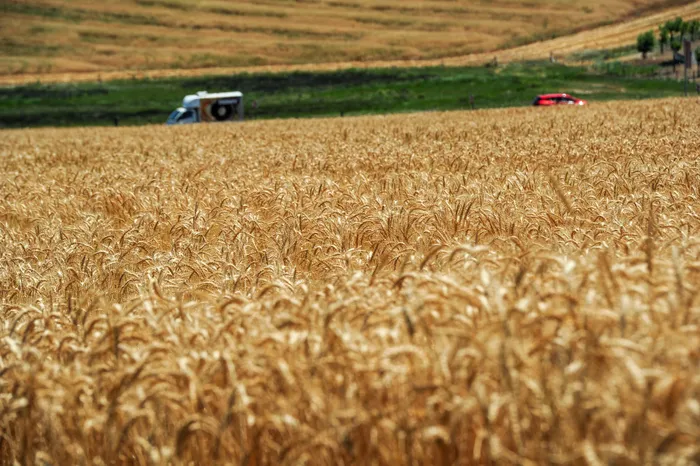
BRICS Competition Law and Policy Centre report released on Friday raised concern about global commodity prices such as grain and the influence of global trade players.
Image: Henk Kruger / Independent Newspapers
A recent report from the BRICS Competition Law and Policy Centre has spotlighted growing concerns regarding the impact of dominant global commodity traders on food prices, particularly in the grain sector.
Released on Friday, this report sheds light on how a handful of companies control an overwhelming share of the global bulk grain trade, exacerbating issues of food affordability and availability worldwide.
In an interview with Business Report, Alexey Ivanov, director of the Centre and a Professor of Law at HSE University, discussed the alarming concentration of power in the hands of traders commonly referred to as the ABCD group—Archer Daniels Midland, Bunge, Cargill, and Louis Dreyfus—as well as significant emerging players such as COFCO, Wilmar, and Olam, collectively termed ABCD+.
Ivanov said this coalition now wields control over an astonishing 80% of the global bulk grain trade and have long moved beyond the traditional model of raw commodity suppliers.
“Today, they build complex ecosystems with a presence across multiple levels of the supply chain — including logistics, storage, trade, financial services, and digital infrastructure.
“Due to their operational scale, vertical integration, and exclusive access to data on stocks and prices, ABCD+ traders exert systemic influence over global supply chains, acting not only as intermediaries but also as coordinators of global food trade.”
Ivanov said this dominance translated into significant power over commodity pricing, adding that while these traders capitalise on market instability to bolster profits, they derive a staggering 70-90% of their revenues from derivative-based income rather than traditional trading.
Ivanov said that all of this gives them significant power in shaping commodity prices.
“The ABCD+ traders demonstrate exceptional profit growth during periods of market instability and uncertainty. These companies derive between 70-90% of their revenues from derivative-based income rather than traditional physical commodity trading. It allows them to capitalise on price volatility through futures and derivatives trading in grain markets.”
Moreover, the impact of these trading activities is not merely theoretical. When ABCD+ traders engage in extensive futures trading, their movements directly affect benchmark prices, instigating rippling effects throughout the food system.
For instance, soaring wheat prices inevitably lead to higher costs for bread and related staple foods, while increases in corn and soybean prices elevate the costs of animal feed, which are then passed on to consumers as the price of meat, dairy, and eggs escalates.
The consequences of this price amplification disproportionately burden the world's most vulnerable populations. Ivanov said that it creates artificial scarcity and price spikes that bear little relation to actual harvest conditions or global food availability.
“The primary global impact is extreme price volatility that is increasingly disconnected from the reality of harvests. Our report provides concrete data on this: for instance, wheat prices have shown monthly swings averaging over 10%, reflecting a market driven more by financial speculation than by supply and demand.”
The implications for South Africa are particularly acute, with the country importing approximately 50% of its wheat supply.
“This high import dependency means the country has no buffer against these global price shocks. When speculative activity drives up international prices, South African consumers feel it almost immediately at the checkout counter,” he said.
The recent Bunge-Viterra merger exemplifies these challenges, as it consolidates power within an already non-competitive market.
“It represents a massive consolidation of power in a market that already has very little competition. This deal created a new $34 billion (R591 billion) giant, further concentrating power within the small, dominant "ABCD+" group of traders,” Ivanov said.
“Crucially, this global giant was approved by most regulators worldwide with startlingly weak conditions. The remedies applied in some jurisdictions, like the sale of a few local assets, fail to address the core issue: the massive increase in the company's power over the global agricultural value chain, which is where commodity prices are truly shaped.”
Ivanov said that the concentration of power in the hands of these few trading giants directly contributes to the rising cost of living for ordinary people around the world.
In light of these developments, Ivanov urges for greater scrutiny and regulatory reforms to counteract the burgeoning influence of these trading giants, asserting that “their powers directly contribute to rising living costs for everyday consumers globally.”
BUSINESS REPORT